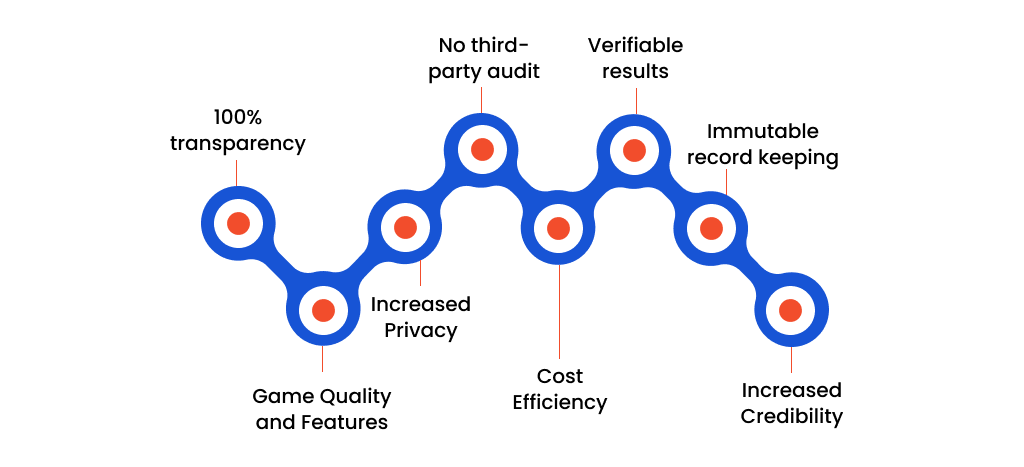Hookup Check: Your Ultimate Dating Resource
Explore insights, tips, and advice for modern relationships and hookups.
Fair Play or Fool's Gold? The Truth Behind Blockchain Audits
Uncover the hidden truths of blockchain audits. Are they safeguarding your investments or just glittering illusions? Don't miss out!
The Basics of Blockchain Audits: Ensuring Fair Play or Just Fool's Gold?
The world of cryptocurrency and decentralized finance (DeFi) has brought forth the need for blockchain audits—a crucial procedure aimed at ensuring the integrity, security, and efficiency of blockchain systems. A blockchain audit involves a comprehensive examination of the code and underlying infrastructure of a blockchain project. This process not only identifies potential vulnerabilities but also verifies that the system adheres to established standards and protocols. By conducting regular audits, organizations can demonstrate their commitment to transparency and accountability, fostering a sense of trust among users and investors alike.
However, the effectiveness of these audits can often be called into question. Some critics argue that relying solely on blockchain audits is akin to placing faith in a double-edged sword—while they enhance security, they cannot completely eliminate the risk of shortcomings or malfeasance. As the industry evolves, the challenge remains to maintain the credibility of these audits, ensuring they are not merely a facade meant to attract investment. In this complex landscape, it becomes imperative for stakeholders to distinguish between comprehensive, genuine audits and those that serve as fool's gold, offering a false sense of security.

Counter-Strike is a popular first-person shooter game that has captivated millions of players worldwide. It emphasizes teamwork, strategy, and skill as players engage in intense battles. To enhance your gaming experience, consider utilizing a stake promo code for various gaming benefits.
Unpacking Blockchain Audits: Are They Truly Reliable?
Blockchain audits have emerged as a critical component in ensuring the integrity of blockchain systems. By examining the underlying code and transactions, these audits are intended to identify vulnerabilities and confirm that the platform adheres to security standards. However, the reliability of these audits is often questioned. Many factors contribute to this scepticism, including the varying expertise of auditing firms and the rapid pace of technological advancements in the blockchain space. Moreover, a successful audit does not guarantee that future exploits won't occur, leading to concerns about the long-term reliability of these assessments.
Another aspect to consider is the transparency of the audit process itself. While some firms maintain a high level of openness by publishing their findings, others do not. This lack of transparency can create doubt among stakeholders regarding the audit's thoroughness and accuracy. Furthermore, the increasing trend of decentralized finance (DeFi) platforms adds another layer of complexity, as traditional audit methodologies may not fully apply. Therefore, while blockchain audits are a valuable tool in evaluating the security of blockchain projects, their reliability often depends on the auditors' credibility, the transparency of the audit results, and the evolving nature of the technology.
What You Need to Know About the Effectiveness of Blockchain Audits
The effectiveness of blockchain audits has become a significant topic in the realm of digital finance and technology. As blockchain technology continues to evolve, ensuring the integrity and security of transactions is paramount. A blockchain audit refers to the thorough examination of the blockchain's operations, including its protocols, code, and transactions, to ensure they comply with established standards and regulations. This form of auditing can detect discrepancies, potential vulnerabilities, and fraudulent activities, ultimately enhancing trust among users. Moreover, the transparency offered by blockchain allows auditors to perform their tasks with a higher degree of efficiency and precision.
However, not all blockchain audits are created equal. The effectiveness of an audit largely depends on the methodologies employed and the expertise of the auditors. Organizations must choose qualified firms that not only understand blockchain technology but also possess the analytical skills necessary to interpret complex data. Additionally, the frequency of audits plays a crucial role; regular assessments can prevent vulnerabilities from being exploited. In a world where cyber threats are ever-evolving, understanding and investing in robust blockchain audits can significantly mitigate risks and protect assets, making it an essential practice for businesses leveraging this groundbreaking technology.